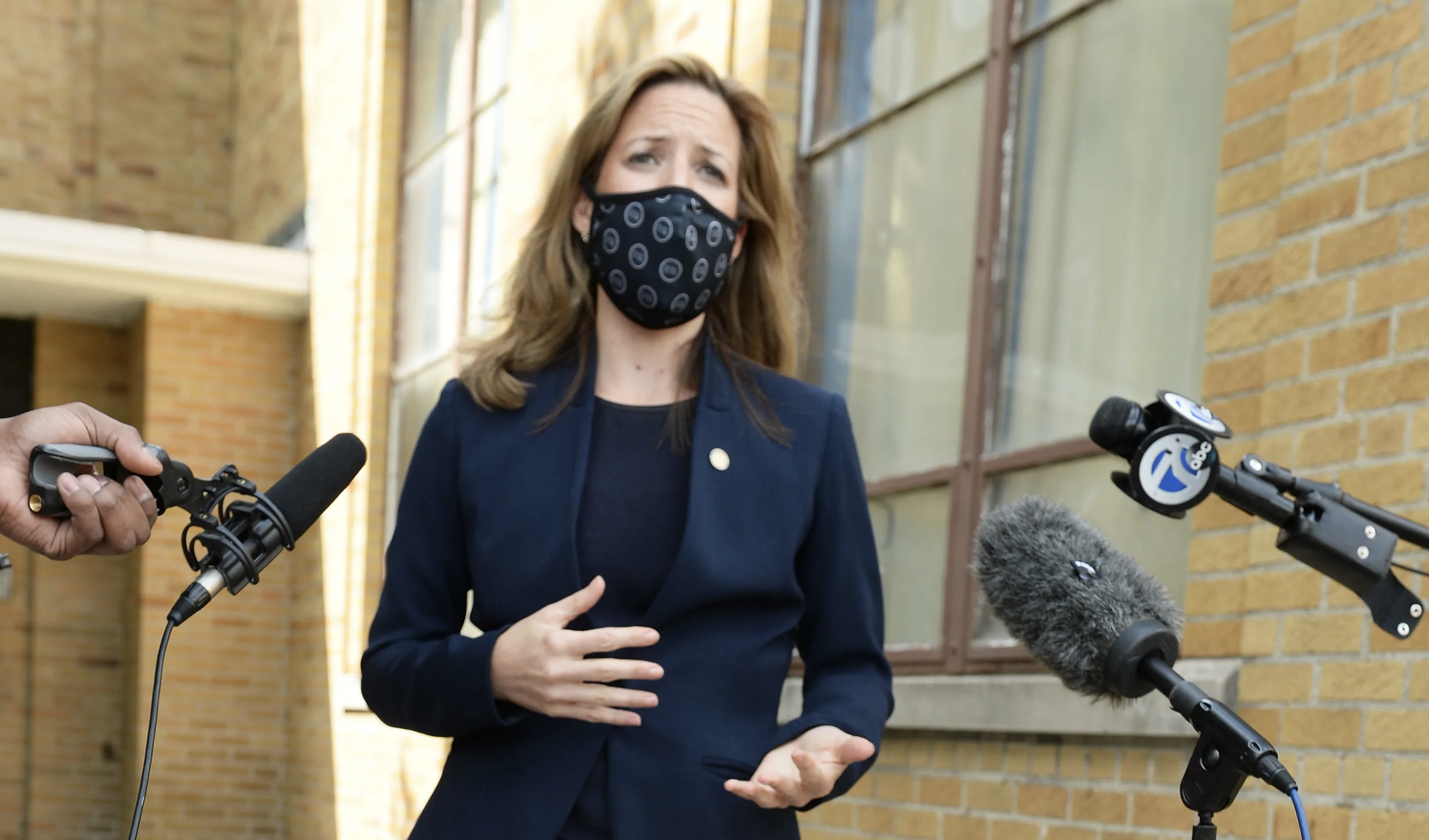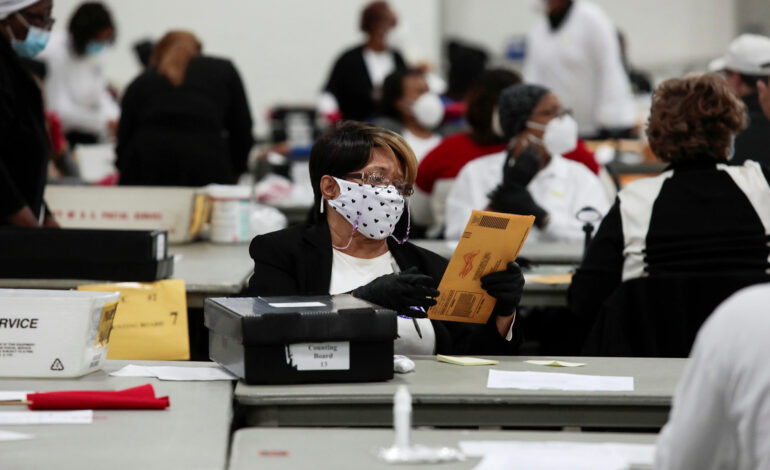LANSING — Data of rejected ballots from the Nov. 3 general elections shows more wrongfully cast votes were rejected for a variety of reasons in that election than the August primary.
Ballots can be rejected for several reasons. For example, when no signature is provided by the voter, or when the signature doesn’t match records or when a voter casts an absentee ballot, then subsequently dies before election day.
Outgoing President Trump and his allies have repeatedly cast doubt on the integrity of nationwide elections, especially in battleground state where he lost, by slinging accusations of widespread voter fraud without providing any evidence of such a scheme.
In Georgia, Trump has claimed voter signatures did not match voter records on file, a claim dismissed by election officials there. In fact a hand implemented audit in that state did not overturn Joe Biden’s victory, just as a Trump funded recount in Wisconsin added more votes for Biden.
In Michigan, records now show that election clerks rejected many votes for the same inconsistency that Trump and his allies have said were overlooked.
A total of 15,302 votes were rejected in the election, up from 10,600 in the August primary. The Secretary of State’s Office does note that the rate of rejection for signature issues fell from August to November, from 0.14 percent to 0.1 percent, and the number of ballots that arrived after the deadline of 8 p.m. on Election Day also dropped, from 6,400 in August to 3,300 in November.

Secretary of State Jocelyn Benson
I am extremely proud of the 1,600 clerks across the state who embraced the record setting turnout, including more than double the number of absentee ballots ever cast in a Michigan election and vigilantly ensured that all valid ballots were counted — MI Secretary of State Jocelyn Benson
Secretary of State Jocelyn Benson sad she was proud of the work done by city clerks across the state during the Nov. 3 election.
“I am extremely proud of the 1,600 clerks across the state who embraced the record setting turnout, including more than double the number of absentee ballots ever cast in a Michigan election and vigilantly ensured that all valid ballots were counted,” Benson said. “It is also gratifying that our voter education efforts, alongside those of countless other nonpartisan organizations, in addition to the installation of secure ballot drop boxes across the state, combined to dramatically reduce the rate of voter disenfranchisement due to late submission and signature errors.”
This is not say the election was conducted without errors. Wayne County, and especially Detroit, did experience precincts that were out of balance, a point brought up during the county’s certification process when two Republican members of the Board of Canvassers initially refused to sign off on the results.
But Detroit had more unbalanced precinct in August and during the general election in 2016 when the presidential margin was much tighter. Republicans did not attempt to block election certification or call for a recount then. Unbalanced precincts are a common occurrence during elections and are attributed to human errors.
Here is the full breakdown of rejected votes in the Nov. 3 general elections:
| Reason for Ballot Rejection | Number rejected | % of 3.3M ABs |
|---|---|---|
| Ballot Arrived after 8 p.m. Nov. 3 | 3,328 | 0.1% |
| No Signature | 1,852 | 0.06% |
| Signature Did Not Match | 1,400 | 0.04% |
| Voter Moved to Another MI Jurisdiction Before Election Day | 4,090 | 0.12% |
| Voter Cast Absentee Ballot While Alive but Died Before Election Day | 3,469 | 0.11% |
| Voter Registration Cancelled Before Election Day | 1,015 | 0.03% |
| Envelope Submitted Without Ballot | 85 | <0.01% |
| ID Not Confirmed (for first time voter who registered by mail) | 58 | <0.01% |
| Voter Sentenced or Incarcerated Before Election Day | 5 | <0.01% |
| Total | 15,302 | 0.46% |






Leave a Reply